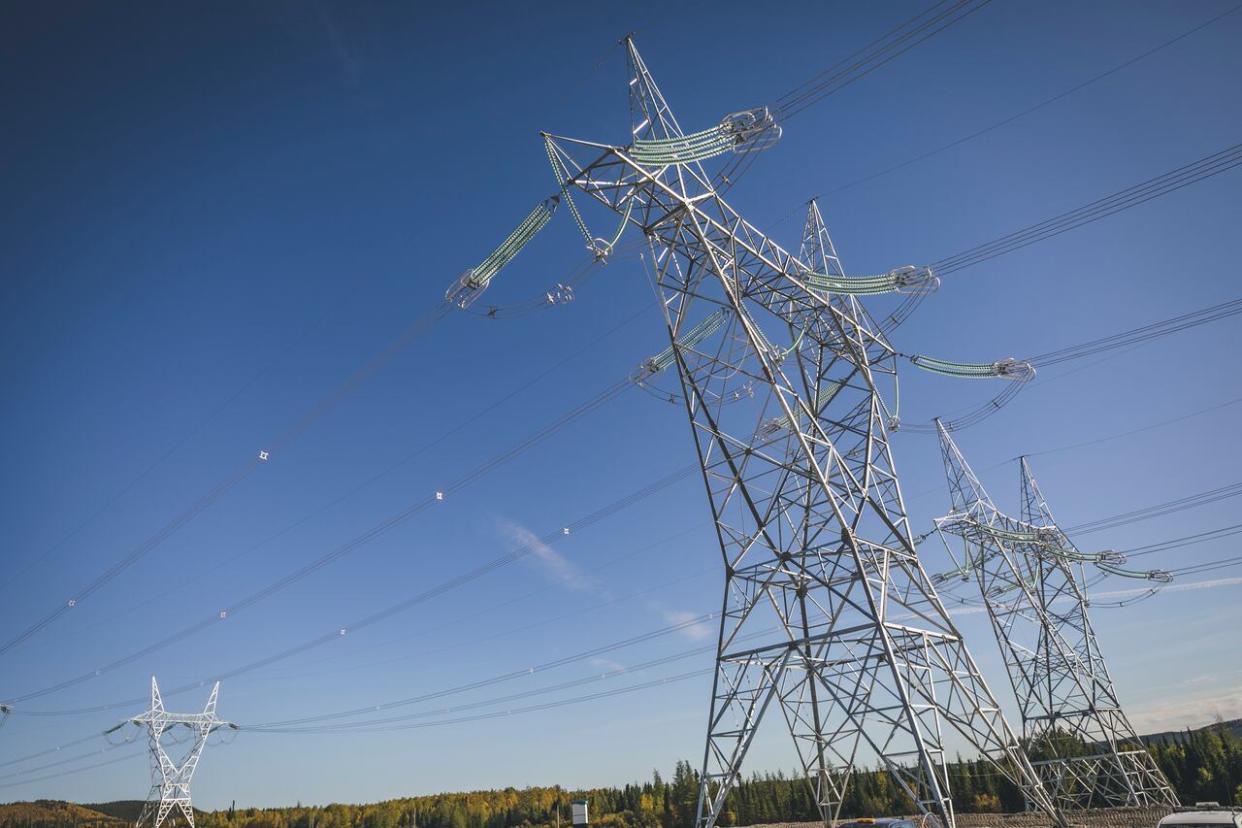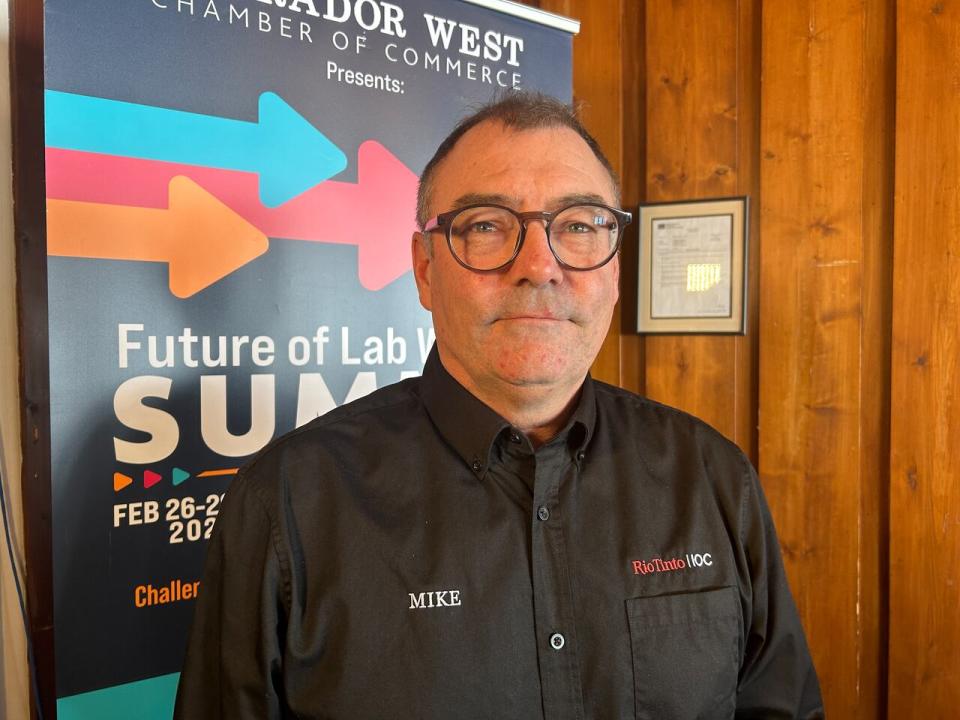Labrador West is ready to put a jolt in N.L.'s economy, but needs more power to do so


Labrador West currently has two power lines providing electricity to the region, but officials tied to the community say a third is necessary for Labrador West to further develop. (Submitted by Nalcor Energy)
A recent summit highlighting Labrador West showed off plans to expand housing, health care, and mining in a region of Newfoundland and Labrador that believes it can contribute more to the province's bottom line.
But in order for all of that to happen, local leaders say a key piece of civic engineering needs to be addressed first.
Jordan Brown, the MHA for Labrador West, told the summit of the region's need for an additional power line. Without it, he said, the area won't be able to develop any further.
"Over 1,000 megawatts of power is required for Labrador West to ... move into the green steel industry. And that's somewhere we have to go, because if we don't do that we're going to be pushed out of the market when it comes to iron ore," Brown told reporters during the summit in February.
"If we don't get this power, the economy of Labrador West is dead in the water."
Labrador receives its power from Newfoundland and Labrador Hydro on a system interconnected with the Churchill Falls Hydroelectric Generating Station, which is capable of producing 5,428 megawatts.
The two lines of the Labrador-Island Link, between Muskrat Falls and Soldiers Pond on Newfoundland's Avalon Peninsula, are capable of transmitting about 900 megawatts.
Mike McCann, president and CEO of the Iron Ore Company of Canada — which owns the iron ore mine in Labrador City — told the summit that decarbonizing its operation is key to the company's future.
However, he said, that hinges on having more power.

Mike McCann is president and CEO of the Iron Ore Company of Canada, which owns the iron ore mine in Labrador City. The company is focused on decarbonizing and moving toward green steel production, but McCann says more power will be essential for the work. (Alex Kennedy/CBC)
"We've been working closely with Newfoundland Hydro in terms of what are our aspirations. What does it look like for the future of IOC, decarbonizing if we want to grow these pieces. And obviously, those things need additional power," McCann said.
McCann cited an economic study at the summit that suggested Labrador West has an opportunity to build the province's gross domestic product by almost two per cent if projects being explored are greenlighted.
He and others at the conference also spoke of the need for more housing in the region, which would only increase power demands in the years ahead.
New line could see construction in 2026
Speaking at the summit on Feb. 27, Industry, Energy and Technology Minister Andrew Parsons said Newfoundland and Labrador is being recognized as a global competitor in the mining and energy sector and recognizes the challenges the lack of necessary power presents.
"We know we need to find a way forward, but we need to know who is there, what they need [and] put that all together because these are big, big decisions," Parsons said. "We're talking generational decisions and generational costs that come with this. But I can tell you that we need to find a way to partner on that and move it forward."
Parsons is hopeful Labrador can see movement on a new power line soon, saying during the summit that construction could start as early as 2026.
Jennifer Williams, C.E.O. of Newfoundland and Labrador Hydro, believes that could be possible — but a number of things would need to fall into place.

Industry, Energy and Technology Minister Andrew Parsons and Newfoundland and Labrador Hydro Jennifer Williams, seen in these file photos, say they know the power challenges facing Labrador. (Peter Cowan, Terry Roberts/CBC)
"The kinds of things that the companies are talking about from an economic development perspective are big increases to power. And so we've been working with the companies for several years now to take many ideas and shrink them down into an idea that is palatable," she said.
"We're working with the proponents to confirm their interest, and then we're going to get into more detailed engineering…. If we don't try to innovate there and be out ahead of it, we're going to be at the back of the line and it's going to take us even longer. Therefore the cost goes up."
McCann said IOC will make their own economic assessments to determine their cost per unit of power on a new line.
Download our free CBC News app to sign up for push alerts for CBC Newfoundland and Labrador. Click here to visit our landing page.


